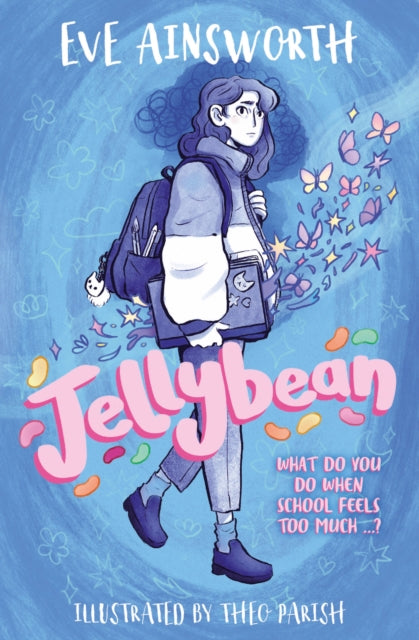
Ellie battles feelings of anxiety about school that she can’t explain in this sensitively told tale from acclaimed author Eve Ainsworth. When Ellie wakes up one day and can’t face going to school, her parents think there must be a reason. Is she being bullied? Or is the schoolwork too hard? But neither of these things are the problem, and Ellie finds it impossible to explain how she feels.
As the days of absence turn into weeks and then months, Ellie’s parents support her through this difficult time, but can she find a way to go back? Particularly suitable for readers aged 11+ with a reading age of 7.
- Author: Eve Ainsworth
- Illustrator: Theo Parish
- Publisher: Barrington Stoke
- ISBN: 978‑0‑00‑873952‑2
- Publication date: 14 August 2025
- Interest age: 11+; Reading age: 7 (designed to be highly accessible)
- Dimensions: 129 × 198 mm approx.
- Weight: approx. 270 g
- Accessible layout: short chapters, dyslexia‑friendly font, supportive spacing and illustrations to aid reading ease.
FAQs
Q1. Is this book suitable for someone with dyslexia?
Yes — it is published by Barrington Stoke, a specialist in accessible texts, and is designed with a reading age of 7 and interest age of 11+, using a dyslexia‑friendly layout, font and illustrations to support engagement.
Q2. What age is this book appropriate for?
This book is ideal for readers aged 11 and above who may be struggling with school anxiety or emotionally‑based absence. It is also suitable for readers who have a lower reading age (around 7) thanks to its accessible format.
Q3. What is the main theme of the book?
The story centres on Ellie, who finds herself unable to attend school due to overwhelming anxiety that she cannot fully explain or articulate. It explores the impact of school avoidance on the young person, their family and their friends — as well as the journey back towards attendance and engagement.
Q4. Will this book be helpful in a school setting?
Absolutely. The book includes information for parents/carers and young people about Emotional Based School Avoidance (EBSA), strategies to support returning to school and discussion points. Many reviewers highlight its usefulness in classrooms for raising awareness.
Q5. Is the ending of the book conclusive?
The narrative offers hope and shows key steps in Ellie’s recovery, but it intentionally leaves some aspects open‑ended — reflecting that returning from school avoidance is rarely linear or quick. This can support discussion and reflection.







